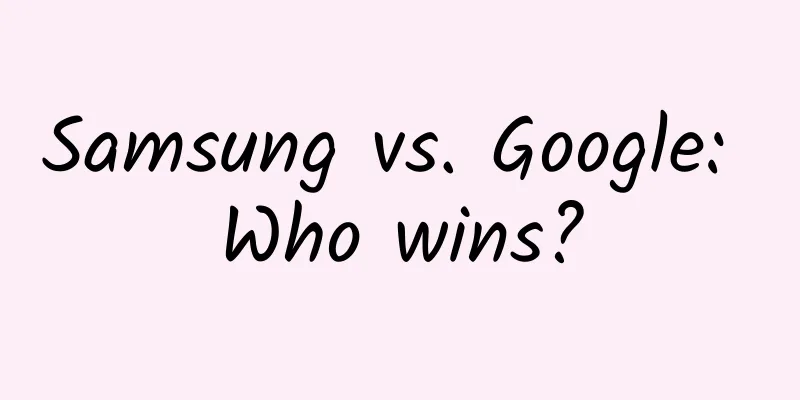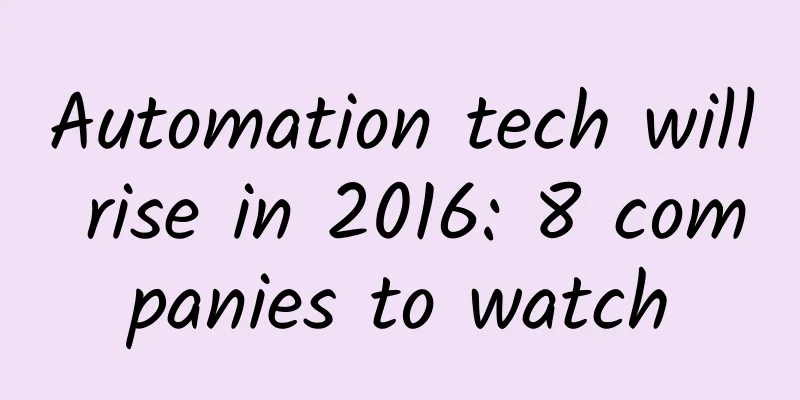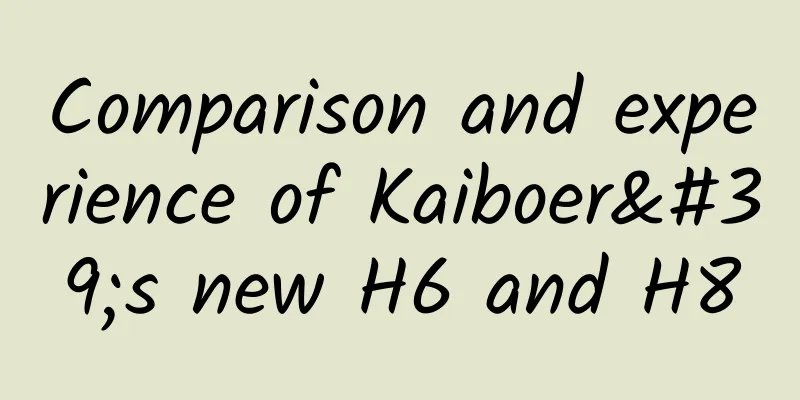Samsung vs. Google: Who wins?

|
The American technology blog TheVerge published an article on Friday, conducting an in-depth analysis of the current strength comparison between Samsung and Google. The following is the main content of the article: Today's world is an ecosystem world, with all kinds of companies trying to get involved in every aspect of our lives as much as possible. But after a great wave of elimination, it seems that only three truly powerful ecosystem companies remain: Apple, Google, and Samsung. Apple has always cultivated its own system, with elegant hardware and exclusive software, and tightly integrated these two types of products. Samsung and Google are engaged in an open and secret battle to provide users with open platforms. Both companies hope to build their own platforms so that other companies can design more products based on them. Just this week, Samsung spent $200 million to acquire SmartThings, a basic platform company in the smart home field. This puts Samsung in a head-to-head competition with Google again: Google just acquired the smart home company Nest. In addition, on the one hand, Google spares no effort to promote its ideal Android system, and on the other hand, Samsung transforms the Android version that suits its style in Galaxy phones. The conflict between the two is getting worse and worse, and Google was even forced to get rid of Motorola Mobility in order to get Samsung back into its camp. This is a power struggle. Who will win in the end? This seems to be a difficult question to answer. Let's see how two editors of TheVerge analyze it: Pro: Samsung will win Samsung is everywhere. In fact, it has always been everywhere. It’s the world’s second-largest shipbuilder, a massive life insurance company, two of the world’s top 50 construction companies, a theme park, and a massive advertising agency. (Oh, and it makes cell phones.) Samsung can take on any Fortune 500 company, and it’ll probably beat it. Google’s brand strength is unquestionable. According to Interbrand’s ranking, Google has become the world’s second-largest brand, second only to Apple. (Samsung ranks 8th.) But the strength of this Korean giant is not just reflected in its colorful brand and large number of fans. It has countless powerful tentacles that penetrate into many industries and companies on this planet. Samsung has deep supply relationships with Apple and other smartphone makers, even though they compete with each other all the time. (Samsung usually wins.) It owns everything from factories to employee uniforms to the hotels they stay in. It has the scale and infrastructure to learn any business, and the money to grow it fast. It also has the marketing budget and skills, and the formula to succeed in any field. That's the appeal of Samsung to SmartThings or other acquisition targets. Maybe it can't write a huge $19 billion check like Facebook, or provide you with an office with a slide like Google, but you can get unparalleled technology and development resources, deep relationships with the entire industry, and even the ability to improve and iterate your products at a very fast pace. These are traditional advantages, and now Samsung has added more advantages: a well-known and beloved brand. The Galaxy smartphones are the best Samsung has ever made, at least from a branding perspective. People line up to buy them: The Galaxy S5 outsold the iPhone 5s in its first weekend. Consumers believe Samsung can make great products, and the word Galaxy has some qualities that Android doesn't even have. In theory, a victory for Samsung is a victory for Google. After all, Samsung's best phones are powered by Android. However, Samsung has been deeply customizing the Android user experience, working to remove Google's traces and promote its own services. Fortunately for Google, this requires excellent application and software development capabilities, which is precisely Samsung's weakness. But Samsung will eventually find a breakthrough, and it has proved this ability many times before. Does Google need Samsung more, or does Samsung need Google more? I think it's the former. Samsung has its own platform, its own services, and its own software. It has achieved vertical integration and does not need to rely on other companies to produce products. Even if Android disappears tomorrow, Samsung can still switch to Tizen immediately - many users can't even notice the difference. As Samsung continues to build its own product ecosystem, it will become more independent and powerful. It would be nice if Google and Samsung could come together, and I hope the differences between them would be reduced. But without Samsung, Google's next goal - getting into your pocket, on your wrist - is almost dead in the water. Without Google, Samsung can still find new directions and develop faster than its peers. It always does this, and that's a manifestation of strength. Opposition: Google won’t lose The key to Samsung's success isn't phones or TVs, or refrigerators or cruise ships or ballistic missile systems or any of the end products people can buy. It's that it has a lot of factories that can produce large, cheap screens. Producing larger screens at a lower cost was key to Samsung's victory over Sony in the TV industry: As demand for high-definition flat-panel TVs surged, Samsung entered the market with lower-cost LCD TVs that were not as good as Sony's but much cheaper. Many people don't care about picture quality, they just want to have such an attractive flat-screen TV in their home, and Samsung can meet their needs with the least money. As the most popular size on the market gradually changes, Samsung can also quickly optimize the production capacity of LCD panels and reinvest the profits into marketing strategies, thereby weakening Sony's brand advantage. The strategy worked so well that it forced Sony to form a joint venture with Samsung to make LCD panels—a stake that Sony eventually sold back to Samsung for nearly $1 billion in 2011. Sony has since failed to regain its electronics success. Samsung has used much the same strategy in mobile phones: The company took the lead with phones of various screen sizes. When consumers wanted larger phones, they quickly introduced giant OLED screens, which had very bright colors but mediocre initial quality. (It has improved dramatically now.) No one else can ship OLEDs in the same volume as Samsung, and the company has been able to feed back its marketing with efficient production—which has also worked well, making Samsung the only competitor to Apple in the mobile space. But there is a big problem with this strategy: Samsung always relies on other companies to highlight the value of low-priced large screens. It is Hollywood, Netflix and Comcast, not the Samsung Media Hub, that really give Samsung TVs value. It is Android and Google Play, not Samsung's S App Bazaar, that really give the Galaxy S5 value. Samsung could embed a large display screen in a refrigerator, but it was a freak until other companies gave it value. Now the initial advantage of the display factory is gradually disappearing, and Samsung's growth in the mobile field is also slowing rapidly. They need another differentiator, but they have not found it yet. Samsung has never proven itself to be a software or platform company beyond shipping larger displays at faster speeds and lower prices. It could buy intriguing companies like Boxee and SmartThings, but it could never make the kind of promise it needed to turn its potential into reality. It's fair game. The world needs Samsung, and they deserve attention. But there's no way Samsung is going to slow down and work through the pain to develop a first-rate platform that's on par with Google. Google makes money by collecting and organizing information and serving ads relevant to it. The more information it has, the more money Google makes. That's why they have an incentive to slow down and focus on building a seamless platform for users. It's been daunting at times, but the progress is clear and the service is useful. Samsung will never be able to compete with Google on this: they don't have the same motivation or drive. Samsung builds software to sell big screens, Google builds software to rule the world. As a winner of Toutiao's Qingyun Plan and Baijiahao's Bai+ Plan, the 2019 Baidu Digital Author of the Year, the Baijiahao's Most Popular Author in the Technology Field, the 2019 Sogou Technology and Culture Author, and the 2021 Baijiahao Quarterly Influential Creator, he has won many awards, including the 2013 Sohu Best Industry Media Person, the 2015 China New Media Entrepreneurship Competition Beijing Third Place, the 2015 Guangmang Experience Award, the 2015 China New Media Entrepreneurship Competition Finals Third Place, and the 2018 Baidu Dynamic Annual Powerful Celebrity. |
<<: Who is the real No. 1 in China's smartphone market?
>>: Four years later, MIUI6 starts to reduce the size of Xiaomi
Recommend
Did you know that the sunlight that shines on us actually came from 5 million years ago?
How long does it take for sunlight to reach the e...
A guide to filling out the application form for the 2020 College Entrance Examination. How to fill out the application form for the 2020 College Entrance Examination?
As the old saying goes, "30% of the test and...
Will MIUI 7 be Xiaomi's lifeline?
[[142119]] Flowers don’t last forever, and people...
TrendForce: Power battery demand and prices to remain stable in May 2024, prices to fall in June
According to the latest research by TrendForce, a...
Linger "Core Leader Strategy" Linger Investment Research Diary
Ling'er "Core Leader Strategy" Ling...
Advertising account optimization methods for the business service industry!
How to optimize accounts in stages to achieve the...
Is it okay to drink coconut water that costs 9.9 yuan per liter? The truth is revealed...
As the weather gets hotter, has your blood been r...
PK intellectual property: Who is stronger, Meizu or OPPO?
You can only tell whether it is a mule or a horse...
Apple Pay is not mature: 80% of iPhone 6 users in the US do not use it
[[129069]] According to a survey of 1,000 iPhone ...
Both friend and foe, what impact do microorganisms have on human health?
Microbes are the kings of the earth Creating habi...
New trends in marketing observation in 2020
In the current environment, no matter whether the...
Why do all mobile phones, not just iPhones, prefer one-piece bodies?
If you pay attention to the new phones released in...
How does Tongcheng operate blind boxes that are popular all over the Internet?
Tongcheng Travel spent only 9 yuan to buy the rea...
How to create a standard e-commerce live broadcast room at low cost?
If the host is the "face" we see when w...
Ten Lectures on Event Planning and Promotion
Event planning is an important part of marketing ...









